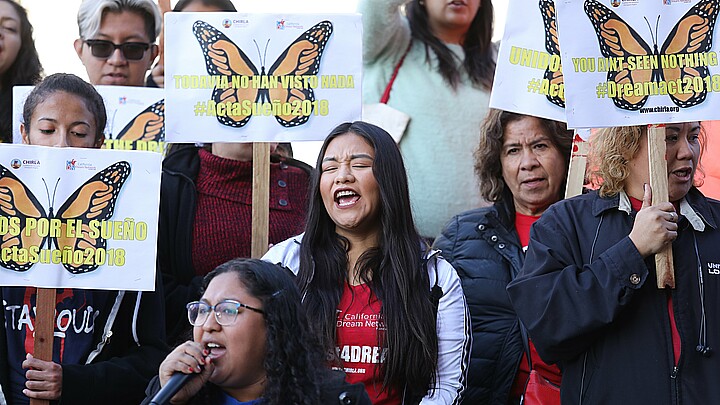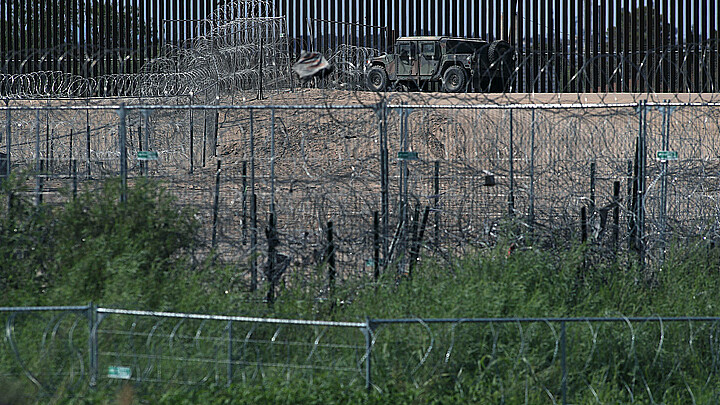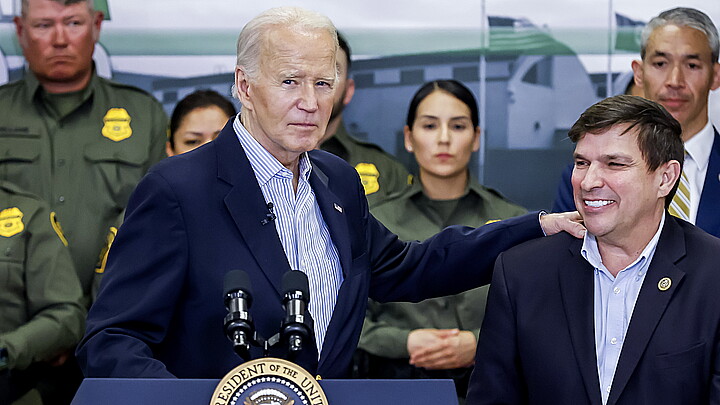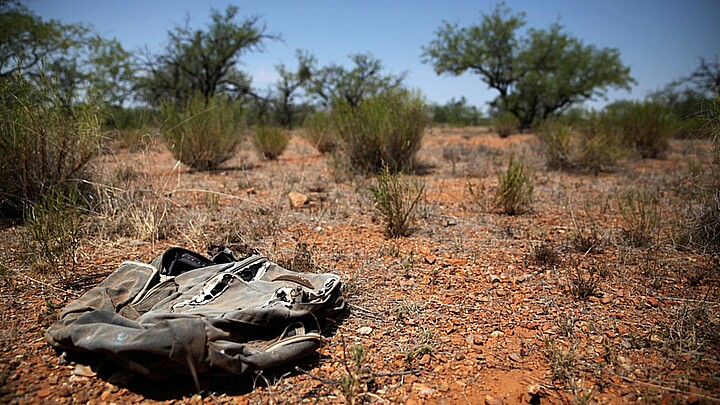Immigration
Supreme Court rules U.S. can remove razor wire border fence installed by Texas
The Court issued a 5-4 ruling with conservatives such as Chief Justice John Roberts and Amy Coney Barrett siding with the federal government over the Lone Star State

January 23, 2024 6:46am
Updated: January 23, 2024 6:46am
The Supreme Court ruled Monday that federal border patrol agents can cut razor wire installed by the State of Texas along the southwest border with Mexico.
The Court issued a 5-4 ruling with conservatives such as Chief Justice John Roberts and Amy Coney Barrett siding with the federal government over the Lone Star State.
The decision overturns a lower federal court ruling that prohibited CBP agents from cutting the wire and policing the border near Eagle Pass, Texas that had been installed by the Texan government.
That area has seen an estimated 270,000 illegal border crossings this fiscal year.
Shortly after Gov. Greg Abbott ordered the installation of the wire fence, the Biden administration asked the Court to order the Texas Military Department to stand down and let federal agents cut down the wire.
Justice Department lawyers who argued on the side of the Biden administration said the wire obstructed CBP agents from processing migrants who already crossed the border.
The Texan move to install the 30-mile wire fence comes months after it also installed a floating barrier in the Rio Grande river, as part of its efforts to halt illegal migration.
That move followed Abbott’s decision to mobilize the National Guard, all part of Operation Lone Star, a massive statewide effort to curb illegal border crossing.
The Biden administration is also arguing to compel Texas to remove the floating barrier in a separate case.
Since the installation of the floating barrier, the U.S. has suggested the Lone Star State is violating the preemption doctrine of the Constitution, which prohibits states from occupying a field exclusively under the jurisdiction of the U.S. government.
According to legal resources such as Nolo, the U.S. has “plenary power” over the sovereignty of a nation giving Congress the power to pass immigration laws and the executive branch authority to administer those laws and pass regulations on actively carrying them out.
The Supreme Court also ruled in 1976, in DeCanas v. Bica that, that “the power to regulate immigration is unquestionably a federal power.”
While the floating barrier raised the ire of Justice Department officials in Washington, the razor fence has received even more attention, sparking fury across the border, prompting Mexican officials to say it violates international humanitarian law.
International criticism has risen as a result of some migrants getting injured when they have tried to cross the border by climbing and swimming the under the razor-sharp wire.
While Abbott has been forced into courtroom showdowns over the floating barrier and razor wire fence, he has also faced a public relations battle with Democratic governors of the cities he has bussed migrants to such as Chicago, Denver, Los Angeles, and New York.
Mayors such as New York’s chief executive, Eric Adams, has blamed both Abbott for sending the migrants, and also Democratic President Joe Biden for failing to get the border under control as the Big Apple has reached what government officials describe as a “breaking point” as a “sanctuary city.”
Adams has estimated the migrant crisis will ultimately cost New York $1.2 billion. It is estimated Texas has bussed more than 100,000 migrants, more than 37,000 of which have reached New York City.
As such, Adams has demanded federal aid from the U.S. government.











